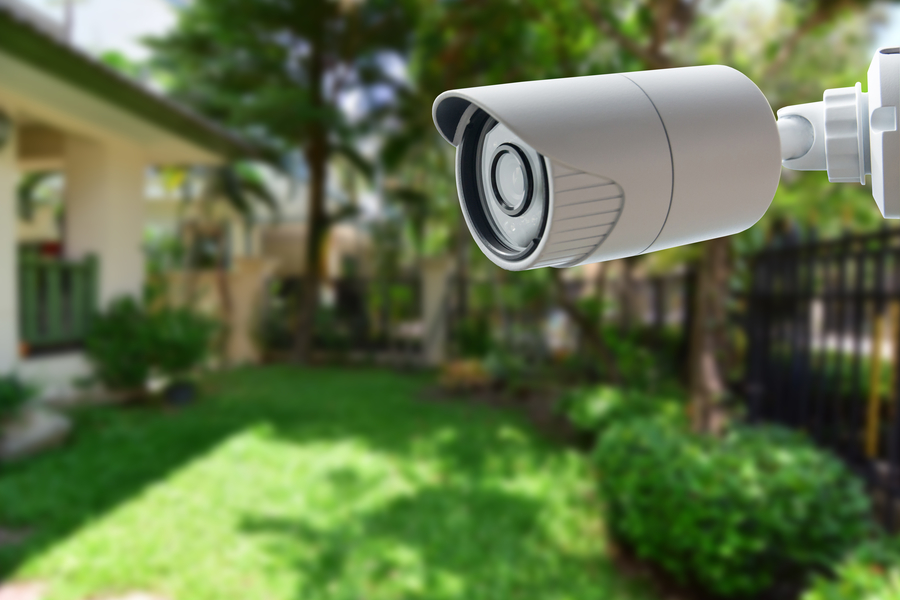5 Things to Know About Installing Home Security Cameras
No. 1 - They’re Not All the Same

Once upon a time, security cameras in residences were something you’d only see in very high-end properties. If you’re reading this, you likely are familiar with many brands of consumer security cameras like Nest, Ring, Arlo, and more. The high-end systems are still there, and they generally provide more surveillance features than the typical consumer products.
Why install security cameras? The primary driver tends to be for safety, but with modern advanced features, there are many other good reasons to have them. The latest models can detect motion and sound, can see in the dark, and can even discern between cars, animals, and humans. Your security cameras can help keep an eye on pets and kids, and also check in with elderly family members at home.
Features abound in both consumer and professional-level products. What should you look for in the security camera installation for your Atlanta, GA home? Read on to learn more.
SEE ALSO: Is Your Home Security System Intelligent?
Camera Types and Features
A large variety of cameras are available for installing indoors, outdoors, and anywhere in-between. Ideally, you want to buy into an ecosystem with a variety of cameras and features that you will use. For example, in some areas, you may need a camera with a very wide field of view. In other spots, you may want to follow the action when motion is detected and be able to zoom in on it. You may want continuous recording capability in some areas, while in others only to be notified if there is motion or loud sounds. While most newer cameras have night vision capabilities, how well they do it can vary greatly. You'll want to buy into a system that offers the best-in-class features that matter to you.
Wired or Wireless
There are fully wireless cameras available. Since all electronics require power, an entirely wireless camera requires a battery. As with any battery, they need to be recharged or replaced. If you want more continuous video recording, battery-powered cameras will deplete quickly and require frequent charging. Modern IP cameras (those that communicate through networking rather than analog cable technology) can be conveniently installed with one cable for both data and power. Others may work over your wireless network but require low-voltage power cables. Wired cameras will be dependable both from a power and data transmission standpoint and are recommended for more extensive surveillance applications. What will work best in your home will depend on the size of the property, what types of monitoring you want, whether you want local video recording or cloud-based, and many other considerations.
Price and Quality
It's often said, "you get what you pay for." In security cameras, even the cheapest consumer products often have long feature lists. There is a difference in hardware and software, and while the feature may work, there may be wide variances in how well they function. Night vision on some cameras may be excellent, while on others barely passable. Quality of software is also critical, as often good hardware is let down by poor software - and vice-versa. If security is a primary concern, choose from companies with extensive products and experience in the area.
Compatibility and Integration
Look for solutions that are not islands unto themselves. Integrating your security camera capabilities with other smart home functions vastly increases their value. Can the camera trigger other intelligent features like outdoor and indoor lights? Can you easily adjust the detection features when you want? Will it turn on automatically with your alarm system? For even more sophisticated automation, can it activate a personalized scene with lights, sound, and temperature when it recognizes you walking in the door? Whatever you want to do, check to see what system the cameras can work with.
Costs
Some systems offer all their features as part of the initial purchase. But with modern connected systems, some charge fees for remote viewing of footage or advanced features like detecting objects and people. If recurring fees are a concern, ask about what value they provide. In some cases, the cost of the system is balanced by a lower price upfront with recurring fees. Other systems require no recurring fees but may not get software-based improvements like others.
GHT Group is your home technology partner in metro Atlanta. From security cameras to full home automation, we’re ready to help. We invite you to visit our Marietta showroom, contact us here, or click the chatbox below to quickly connect with us. We look forward to working with you!